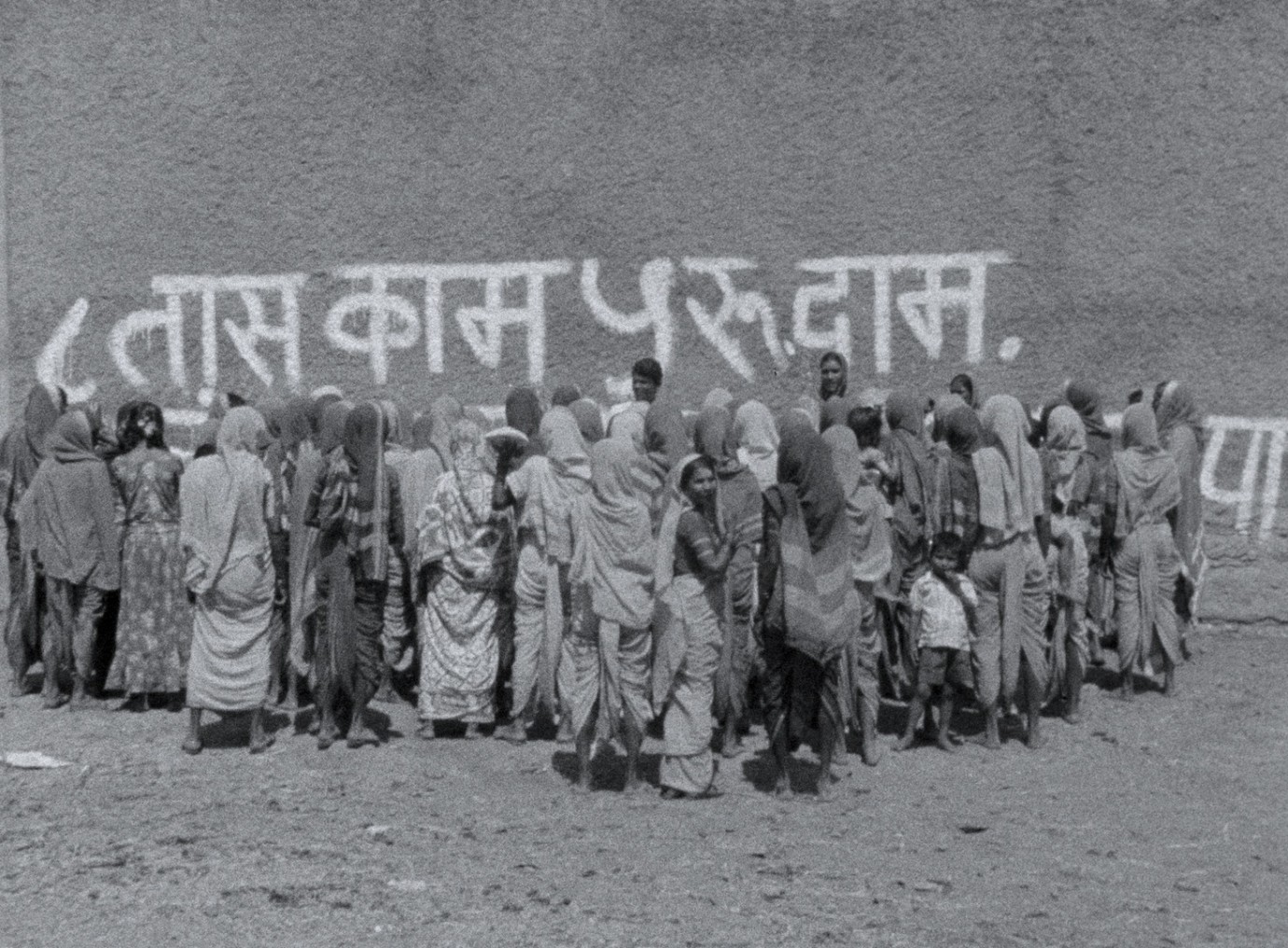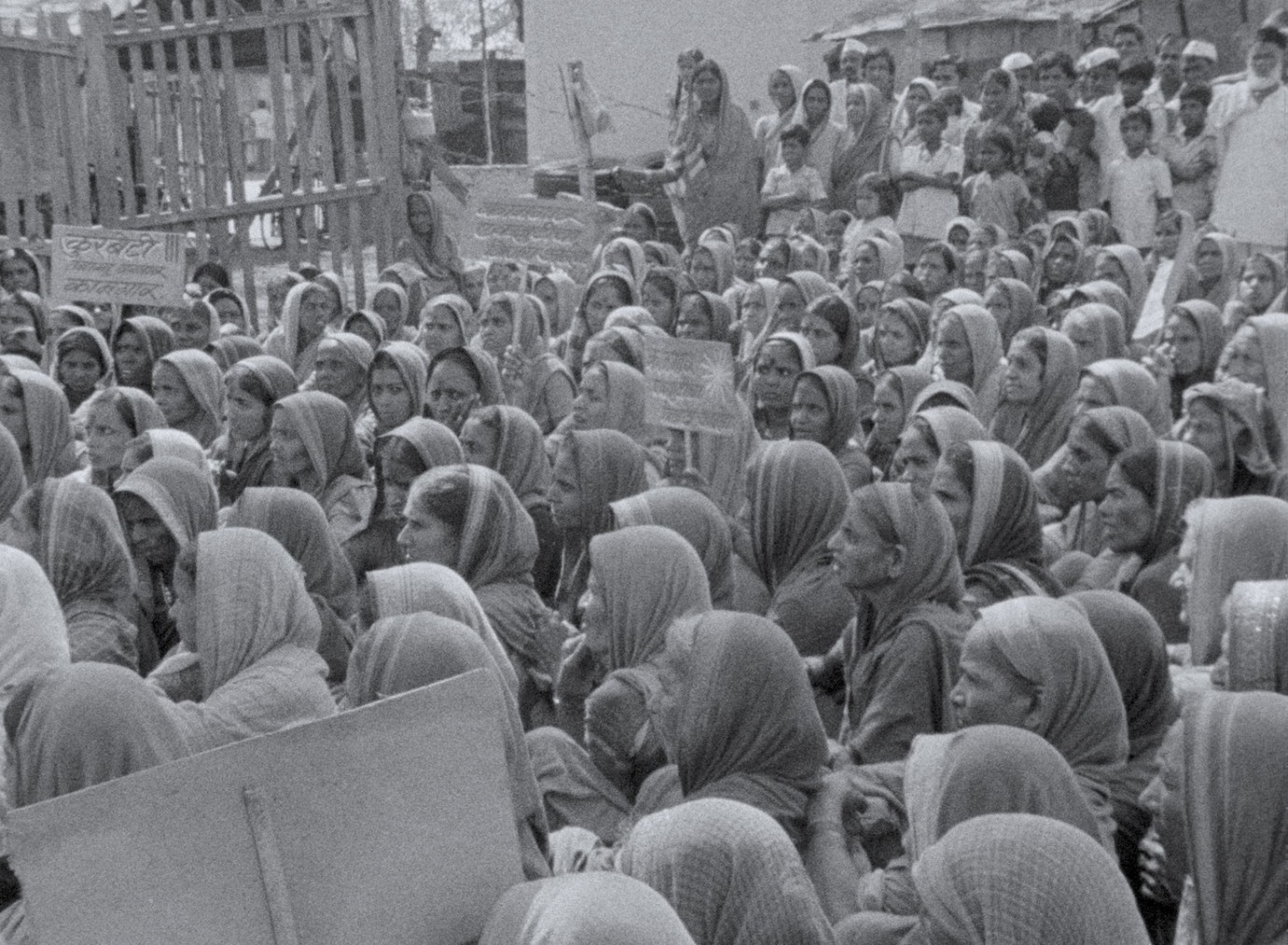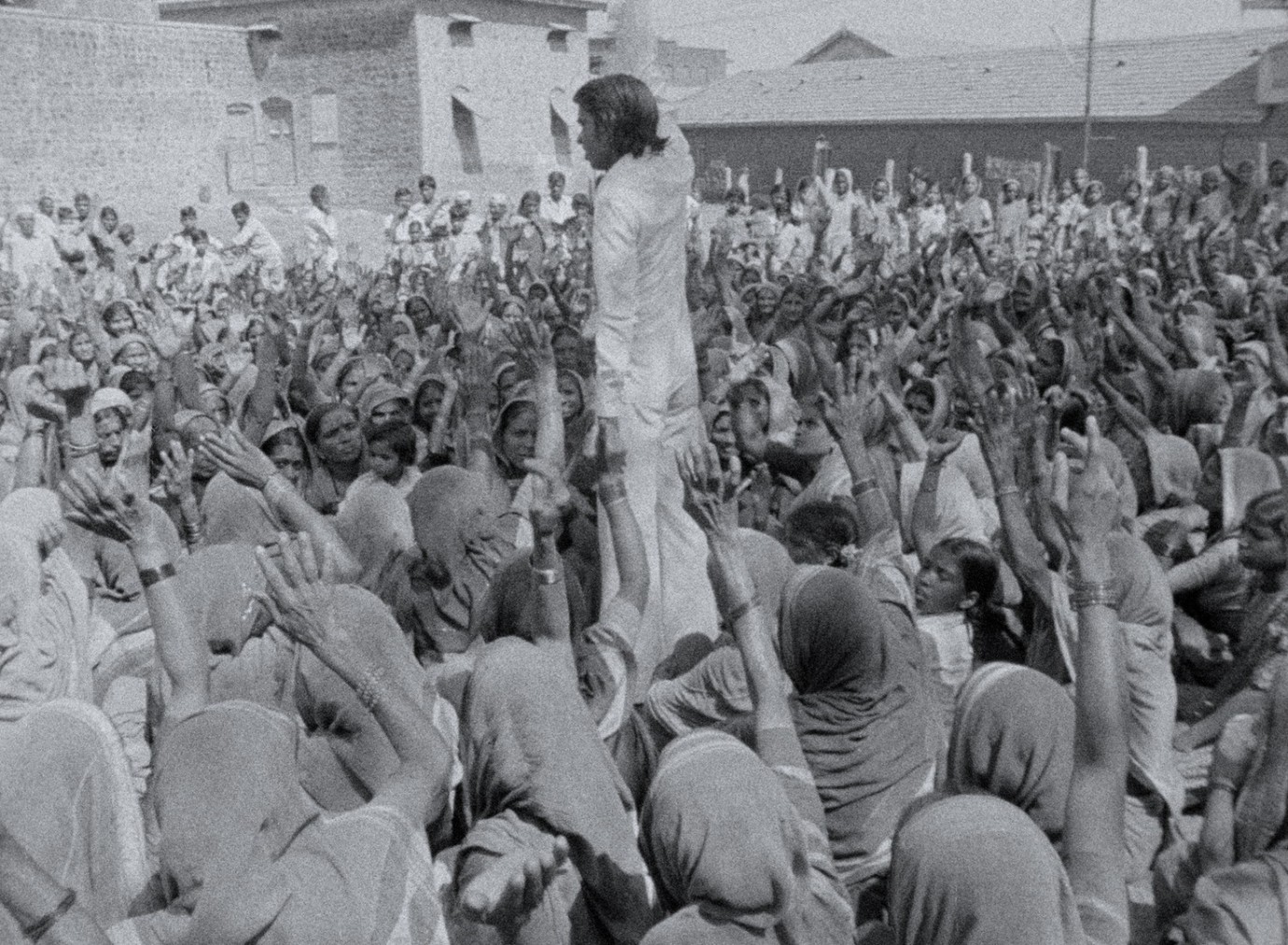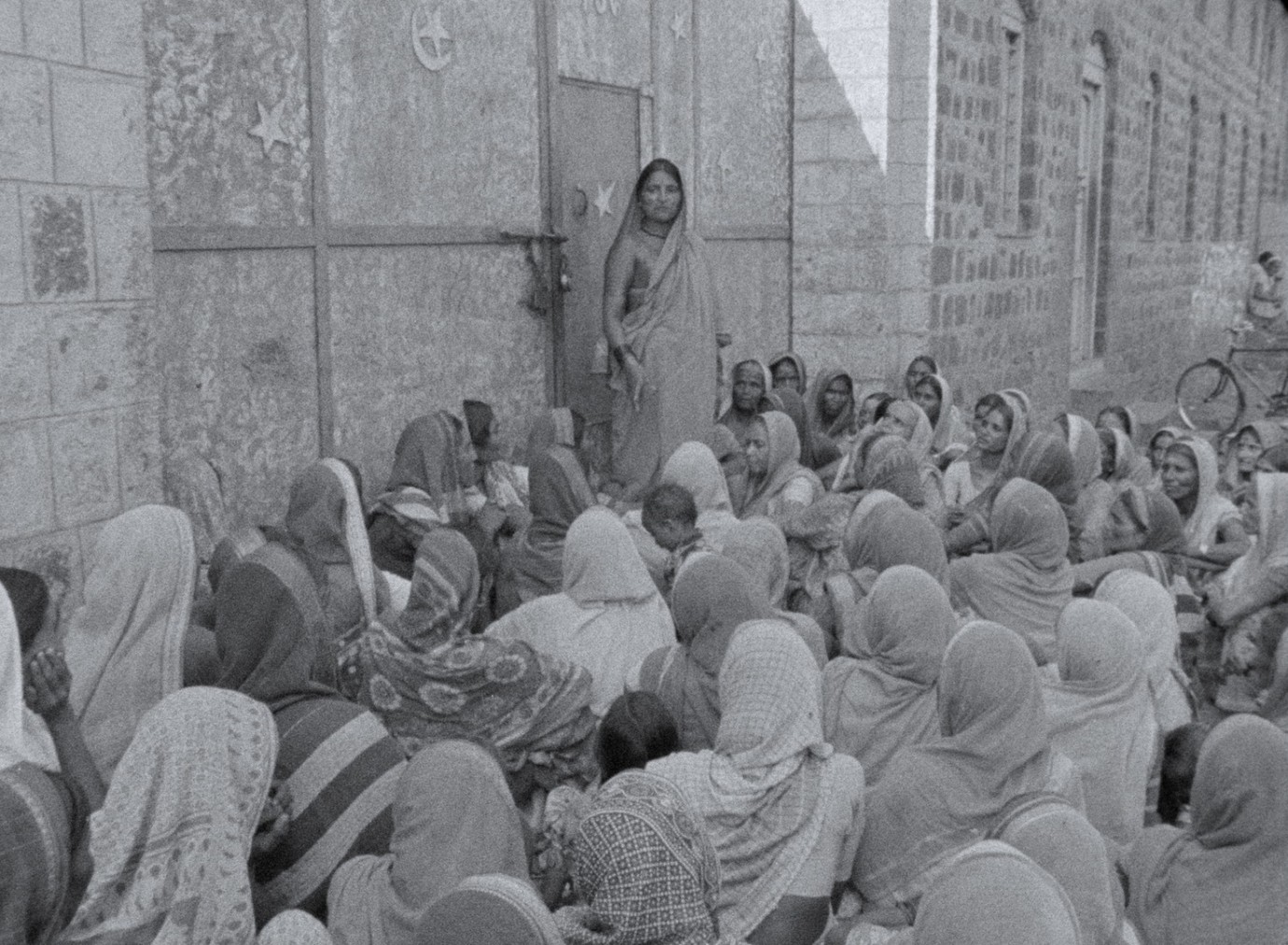Tambaku Chaakila Oob Ali
Tobacco Embers

Tambaku Chaakila Oob Ali | Tobacco Embers by Yugantar
IND 1982, Forum Expanded
© Yugantar

Tambaku Chaakila Oob Ali | Tobacco Embers by Yugantar
IND 1982, Forum Expanded
© Yugantar

Tambaku Chaakila Oob Ali | Tobacco Embers by Yugantar
IND 1982, Forum Expanded
© Yugantar

Tambaku Chaakila Oob Ali | Tobacco Embers by Yugantar
IND 1982, Forum Expanded
© Yugantar
Crew
| Director | Yugantar |
| Cinematography | Navroze Contractor |
| Sound | G.V. Somas Hekhar |
| Producer | Yugantar |
| Restoration | Arsenal – Institut für Film und Videokunst |
Produced by
Yugantar
Yugantar
The film collective Yugantar was founded by Deepa Dhanraj, Abha Bhaiya, Navroze Contractor, and Meera Rao in 1980. Between 1980 and 1983, during a time of radical political transformation in India, Yugantar created four pioneering films together with existing or ensuing women’s groups.
Filmography
1981 Molkarin (Maid Servant); 25 min. 1982 Tambaku Chaakila Oob Ali (Tobacco Ember); 25 min. 1983 Idhi Katha Matramena (Is This Just a Story?); 25 min. · Sudesha
Bio- & filmography as of Berlinale 2023